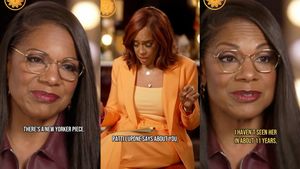Schools should
educate teenagers -- and even children as young as 11 --
about abusive dating situations, say teen health and safety
advocates and state attorneys general.
"Information,
education is empowerment," Rhode Island attorney
general Patrick Lynch said at a news conference Tuesday,
describing what he called "this plague that people
aren't really talking enough about, which is young
people being victimized by domestic violence."
Lynch cosponsored
a resolution adopted at the June meeting of the
National Association of Attorneys General, encouraging
states to work with school districts to educate teens
in health classes about abusive dating relationships.
The resolution notes that these problematic
relationships can have elements of verbal, emotional,
physical, sexual, and financial abuse.
Ann Burke, a
health educator whose daughter died as a result of an
abusive relationship, said, "The topic of teen dating
violence is no different than any other topic we teach
in school."
Lindsay Ann Burke
was 23 when she died. A Rhode Island law named in her
honor requires all school districts to educate seventh-
through 12th-grade students about abusive dating
relationships and to have policies that address
abusive incidents that occur at school.
"So few of our
tweens, and teens for that matter, understand what a
healthy relationship looks like," said Elizabeth Miller, an
assistant professor of pediatrics at University of
California Davis School of Medicine. She added that
many young people "assume the emotional control, the
jealousy, possessiveness, all of that is just part of
relationships, and we need to change that conversation."
(AP)















































































